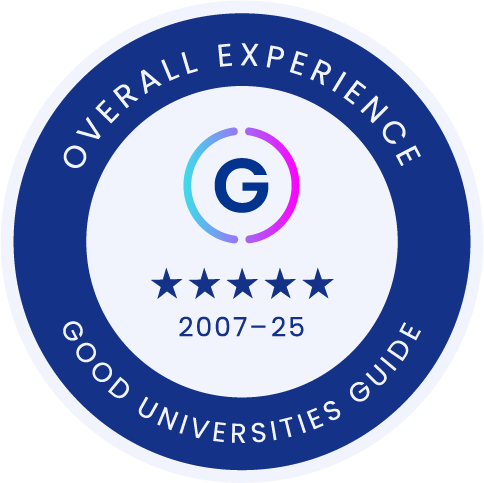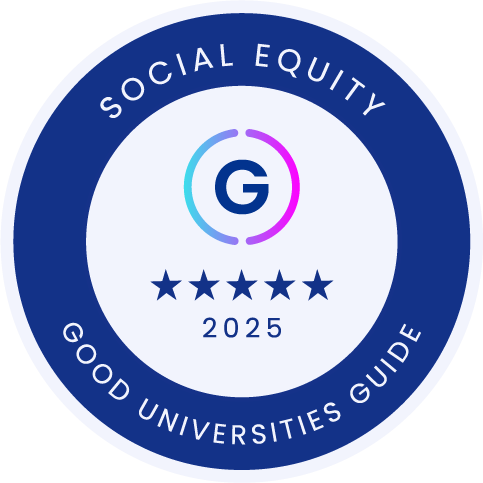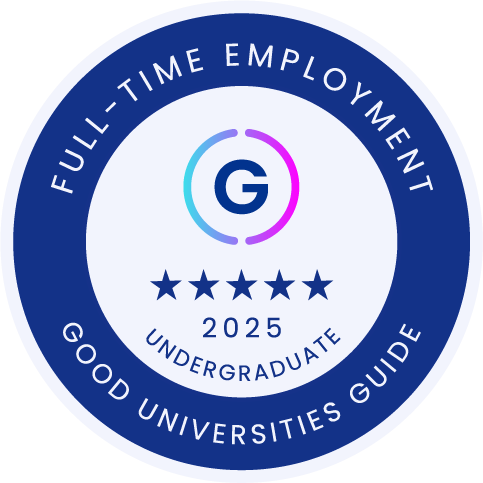Key facts
UNE unit code: COSC210
*You are viewing the 2025 version of this unit which may be subject to change in future.
- Trimester 1 - On Campus
- Trimester 1 - Online
- Armidale Campus
- UNE Sydney Campus
- Yes
- No
- No
- 6
Unit information

The widespread application of digital information systems in society today produces vast amounts of data. Appropriate management of this data is essential for it to be an effective tool for decision making and value adding.
Introducing you to the concepts of database design, this unit takes you from the conceptual level through to the physical level of database management systems, developing your understanding of the techniques underpinning these systems.
You will study relational databases and learn how to model, create and efficiently query them using Structured Query Language (SQL), using relational algebra to provide more generalised data and query definitions within relational database systems.
Design strategies to avoid redundancy, concepts of functional dependency, normalisation and relational decomposition are examined.
Exploring approaches for connecting external applications to databases, you will also gain an awareness of security issues involved with data access.
Offerings
For further information about UNE's teaching periods, please go to Principal Dates.
| Teaching period | Mode/location |
|---|---|
| Trimester 1 | On Campus, Armidale Campus |
| Trimester 1 | On Campus, UNE Sydney Campus |
| Trimester 1 | Online |
*Offering is subject to availability
Intensive schools
There are no intensive schools required for this unit.
Enrolment rules
Notes
COSC210 requires a knowledge of, and programming experience with, a high level programming language.AMTH140 is a recommended unit.Experience with the use of the Linux/UNIX operating system is highly recommended.
To study this unit on campus at the UNE Sydney Campus you must be admitted to your course as an on campus student at the UNE Sydney Campus.
Please refer to the student handbook for current details on this unit.
Unit coordinator(s)

Learning outcomes
Upon completion of this unit, students will be able to:
- describe the essential components of database management systems (DBMS) and apply data modelling approaches to design databases for real-world scenarios;
- explain the principles of the relational model, implement databases using a relational DBMS and understand the architectures that allow application software to use data stored within a database schema;
- work with data stored in a relational DBMS by applying SQL to create database tables, extract, present and modify data, and implement integrity that reflect business logic;
- understand and apply the principles of normalisation and functional dependencies to assess and optimise a relational schema;
- explain the concepts of transaction management, query processing, physical storage and database indexing; and
- explain the societal issues around information privacy, as they relate to the storage and dissemination of data, and apply views and permissions to implement security constraints.
Assessment information
Assessments are subject to change up to 8 weeks prior to the start of the teaching period in which you are undertaking the unit.
| Title | Must Complete | Weight | Offerings | Assessment Notes |
|---|---|---|---|---|
| Assessment 1 | Yes | 20% | All offerings | Theory assignment. All assessment tasks must be attempted. An overall mark of 50% across all assessment tasks is required to pass the unit. No. Words: approx 1000 |
| Assessment 2 | Yes | 10% | All offerings | Practical assignment 1. All assessment tasks must be attempted. An overall mark of 50% across all assessment tasks is required to pass the unit. |
| Assessment 3 | Yes | 10% | All offerings | Practical assignment 2. All assessment tasks must be attempted. An overall mark of 50% across all assessment tasks is required to pass the unit. |
| Online Quizzes | Yes | 10% | All offerings | 10 online quizzes worth 1% each. An overall mark of 50% across all assessment tasks is required to pass the unit. |
| Final Examination | Yes | 50% | All offerings | It is mandatory to pass this component in order to pass the unit. |
Learning resources
Textbooks are subject to change up to 8 weeks prior to the start of the teaching period in which you are undertaking the unit.
Note: Students are expected to purchase prescribed material. Please note that textbook requirements may vary from one teaching period to the next.
Fundamentals of Database Systems
ISBN: 9781292097619
Elmasri, R. and Navathe, S.B., Addison-Wesley 7th ed. 2016
Text refers to: All offerings
A five-star experience
Five Stars,
19 Years in a Row
UNE is the only public uni in Australia awarded 19 straight years of five stars for Overall Experience
Good Universities Guide 2007-2025Five Stars for
Social Equity
UNE rates among the top 20% of universities nationally and is #1 in NSW for Social Equity
Good Universities Guide 2025Five Stars for
Graduate Employment
UNE rates among the top 20% of universities for Graduate Full-time Employment
Good Universities Guide 2025 (Undergraduate)
Studying online
At UNE we know it takes more than just being online to be a great online university. It takes time and experience. We pioneered distance education for working adults back in the 1950s, so we’ve been doing this longer than any other Australian university.
We understand the challenges faced by busy adults studying at home. We know that a vital part of online study is your engagement with the learning community. Communication with your classmates, teaching staff and university support staff will enhance your study experience and ensure that your skills extend beyond the subject matter. UNE’s teaching staff are experts in their field which is why UNE consistently receives five stars from students for teaching quality, support and overall experience.*
*The Good Universities Guide
Stay connected
Register your interest and we'll keep you updated
Why study with us?

I'm grateful to UNE for the opportunities studying has given me, but above all, for making me realise I could actually do it, and giving me a sense of accomplishment.
What happens next?
Got any questions about a course you would like to study? Don’t hesitate to contact us, our Future Student team is standing by to help.
2025 applications are now open. The application process only takes 20 minutes to complete. Don’t delay, apply now!
Your start date is based on the study period you choose to apply for.




